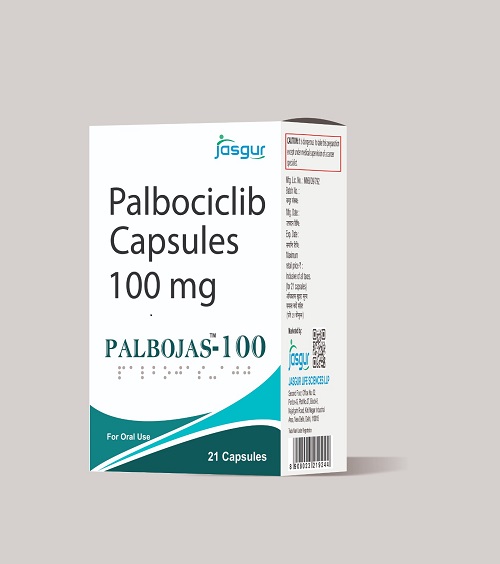
The Crucial Role of the Best Anti-Cancer Medicines
The landscape of cancer treatment is multifaceted, and the best anti-cancer medicines play a pivotal role in managing this complex group of diseases. These medications are designed to do more than just target cancer cells; they also aim to reduce side effects, improve patient outcomes, and enhance the quality of life for those affected. With over 18 million new cancer cases diagnosed annually, the significance of the best anti-cancer medicines cannot be overstated.The objectives of the best anti-cancer medicines include:
- Inhibiting tumor growth by specifically targeting cancerous cells.
- Lowering recurrence risks through advanced therapeutic strategies.
- Boosting survival rates with innovative treatment options.
- Enhancing quality of life by minimizing the adverse effects of traditional therapies.
Categories of the Best Anti-Cancer Medicines
Cancer treatment is no longer a uniform approach. The best anti-cancer medicines are categorized into various classes, each meticulously developed to address specific types of cancer, stages, and individual patient needs. Let’s explore the most effective categories of cancer medications currently available:
1. Targeted Therapy
Targeted therapies are at the forefront of modern oncology. These medications work by zeroing in on specific molecular targets associated with cancer cells, allowing for a more precise attack on tumors while sparing healthy cells. Some of the best anti-cancer medicines in this category include:
- Imatinib (Gleevec): A groundbreaking treatment for chronic myeloid leukemia (CML).
- Trastuzumab (Herceptin): Effective for HER2-positive breast cancer.
- Osimertinib (Tagrisso): Targets non-small cell lung cancer (NSCLC) with specific EGFR mutations.
2. Immunotherapy
Immunotherapy harnesses the body’s immune system to combat cancer. This revolutionary approach has led to the development of some of the best anti-cancer medicines in recent years, including:
- Nivolumab (Opdivo): A PD-1 inhibitor used for advanced melanoma and lung cancer.
- Pembrolizumab (Keytruda): Effective for various cancers, including lung and head and neck cancers.
- Atezolizumab (Tecentriq): Focused on bladder cancer and triple-negative breast cancer.
3. Chemotherapy
Despite the emergence of newer therapies, chemotherapy remains a cornerstone of cancer treatment. The best anti-cancer medicines in this category include:
- Paclitaxel (Taxol): Commonly used for breast, ovarian, and lung cancers.
- Cisplatin: Effective for a variety of cancers, including testicular and bladder cancers.
- Doxorubicin: A versatile agent used across multiple cancer types.
4. Hormonal Therapy
Hormonal therapies are crucial for treating hormone-sensitive cancers, such as breast and prostate cancer. Examples of the best anti-cancer medicines in this category are:
- Tamoxifen: Widely used for estrogen receptor-positive breast cancer.
- Abiraterone (Zytiga): Effective in advanced prostate cancer cases.
- Letrozole (Femara): Commonly prescribed for postmenopausal women with breast cancer.
5. CAR-T Cell Therapy
Chimeric Antigen Receptor T-cell (CAR-T) therapy is one of the most innovative treatments available today. These therapies modify a patient’s T-cells to better target cancer cells and have emerged as some of the best anti-cancer medicines for blood cancers like leukemia and lymphoma.
Trending Anti-Cancer Medicines in 2025
As we progress into 2025, several best anti-cancer medicines are making headlines due to their effectiveness and groundbreaking nature. Here are some trending options:
- Enhertu (Trastuzumab Deruxtecan):
This innovative drug is gaining recognition for its effectiveness against HER2-positive breast cancer and other HER2-expressing tumors. - Libtayo (Cemiplimab):
Approved for advanced basal cell carcinoma and non-small cell lung cancer, this immunotherapy drug is showing significant promise. - Trodelvy (Sacituzumab Govitecan):
A breakthrough medication for triple-negative breast cancer, it is one of the most talked-about best anti-cancer medicines in recent years. - Kymriah (Tisagenlecleucel):
This CAR-T cell therapy has shown remarkable success in treating relapsed or refractory acute lymphoblastic leukemia (ALL).
Emerging Trends in Anti-Cancer Treatment
The oncology landscape is continually evolving, with new trends shaping the future of cancer treatment. Here are some exciting developments influencing the best anti-cancer medicines:
1. Precision Medicine
Precision medicine focuses on tailoring treatments to the individual’s genetic profile and the molecular characteristics of their cancer. This personalized approach is revolutionizing the development of the best anti-cancer medicines.
2. Liquid Biopsies
Liquid biopsies offer a non-invasive method to detect cancer biomarkers in the blood. They help doctors identify the most effective treatments and monitor the success of the best anti-cancer medicines.
3. Combination Therapies
Combining different treatment modalities, such as immunotherapy with chemotherapy or targeted therapy, is proving to be a powerful strategy, leading to the emergence of the best anti-cancer medicines with improved outcomes.
4. Artificial Intelligence in Drug Discovery
AI technology is accelerating the discovery of new cancer drugs, optimizing treatment protocols, and identifying candidates for the best anti-cancer medicines.
Ensuring Accessibility to the Best Anti-Cancer Medicines
While the development of innovative treatments is commendable, ensuring access to the best anti-cancer medicines remains a critical challenge. Many patients, especially in low-income regions, struggle to afford life-saving treatments. Global health organizations, pharmaceutical companies, and governments are working together





Leave a Reply